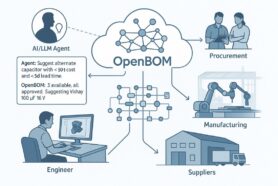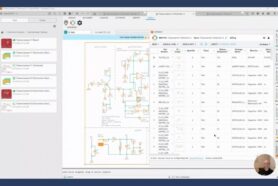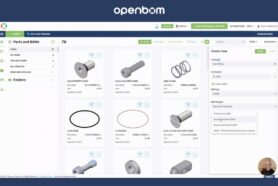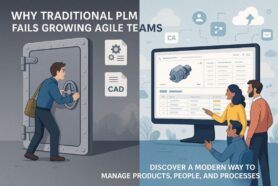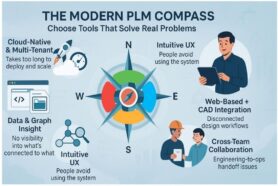
When developing a new product, one of the biggest mistakes companies make is waiting too long to think about costs.
Speaking to many customers, I can see how cost assessment is not happening early enough. Companies are focusing on design and engineering topics, manufacturing of the first article, and other topics, leaving cost assessment for a later stage.
By the time they realize things are getting expensive, it’s often too late to make adjustments without major headaches. That’s why early cost assessment is critical—it helps avoid budget surprises, keeps projects on track, and ensures profitability.
Let’s explore the costly mistakes that happen when early cost management is overlooked—and why it matters more than you think.
What Happens When You Ignore Cost Management?
Usually, my recommendation is to create a product knowledge model listing all components, systems, and sub-systems for cost assessment. If cost assessment is pushed aside, companies often face:
- Last-minute rework – Fixing cost issues late in the game means redesigns, delays, and extra expenses.
- Pricing conflicts – Sales teams may set unrealistic prices, only to later realize they don’t cover actual costs.
- Compromised quality – Cutting costs too late can lead to using cheaper materials or removing key features.
- Missed market opportunities – If cost problems delay the launch, competitors might beat you to market.
Why You Should Estimate Costs Early
1. Avoid Budget Overruns
Nobody likes unexpected costs. If you don’t estimate expenses early, you could find yourself way over budget before the product is even finished. A little planning upfront can save a lot of stress (and money) later.
2. Prevent Supplier Problems
Your suppliers play a huge role in your costs. If you don’t consider pricing and availability early, you might get stuck with expensive last-minute changes or supply chain delays. Smart companies negotiate early to avoid these surprises.
3. Plan Your Finances Better
Good financial planning starts with knowing your costs. When you estimate early, you can set realistic prices, predict profits, and make sure the project is actually worth the investment.
4. Avoid Development Delays
Unexpected costs can slow things down—sometimes forcing redesigns or material swaps at the last minute. Identifying cost risks early helps keep projects moving and ensures products launch on time.
5. Stay Competitive
Knowing your costs from the beginning means you can set a competitive price without losing money. Pricing too high might push customers away, while pricing too low could hurt your margins. The right balance comes from early planning.
The Power of Teamwork in Cost Planning
Product development isn’t just about engineering—it involves finance, supply chain, manufacturing, and sales. When all teams collaborate early on cost estimation, projects run smoother, and decisions are smarter.
- Cross-functional teamwork – Products involve mechanical, electrical, and software components. All teams need to align on cost.
- Big-picture cost planning – A holistic approach ensures no expense is overlooked, from materials to shipping.
- Better resource use – Coordinated teams avoid redundant efforts, saving time and money.
- Smarter decision-making – Diverse perspectives help catch potential cost issues before they become big problems.
Conclusion and Final Thoughts
Early cost assessment isn’t just about saving money—it’s about preventing problems before they happen. The companies that prioritize cost planning early avoid last-minute panic, unexpected expenses, and missed deadlines.
The key takeaway? Plan ahead, involve the right teams, and keep cost management at the center of your product development process. Your bottom line (and your sanity) will thank you. 🚀
Have questions about BOM costing and OpenBOM? Talk to us, and we will help you make an assessment of the problem.
Best, Oleg
Join our newsletter to receive a weekly portion of news, articles, and tips about OpenBOM and our community.





